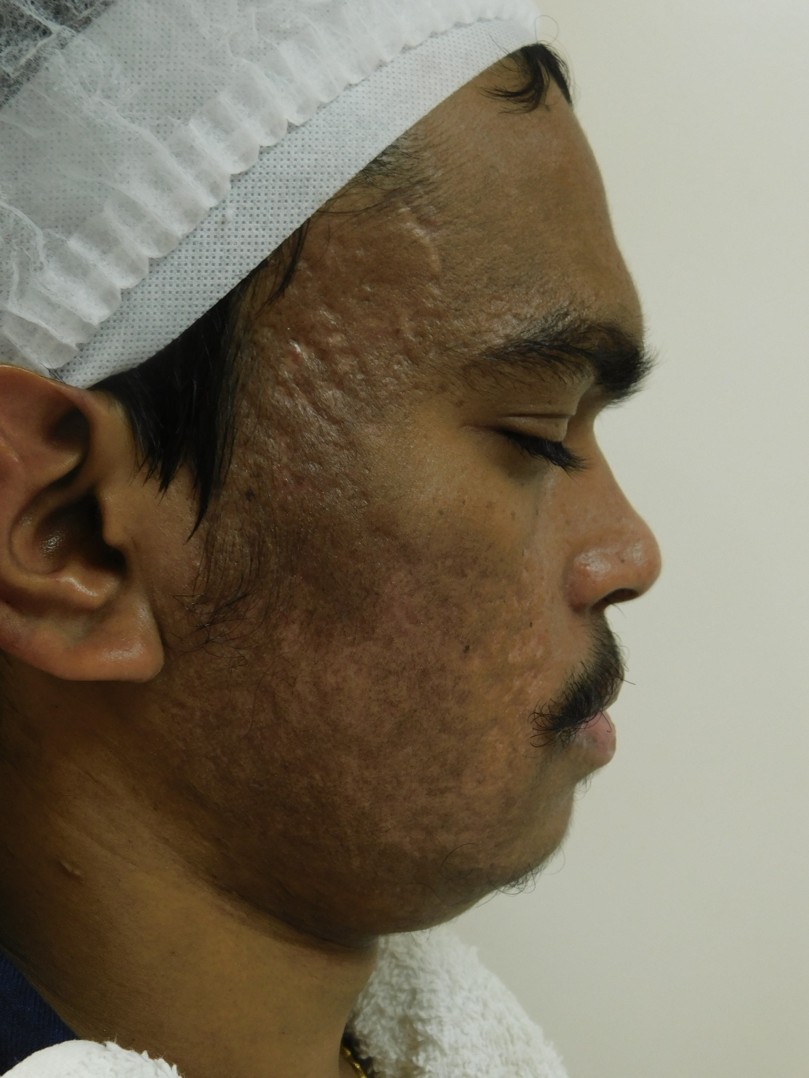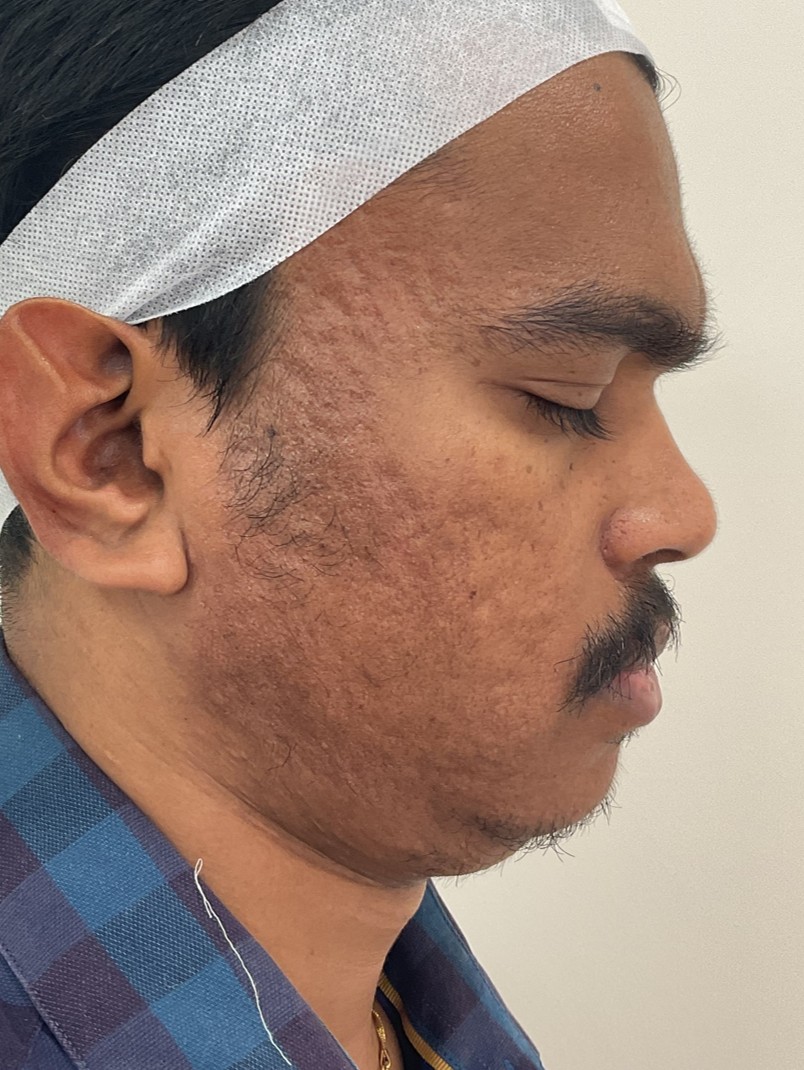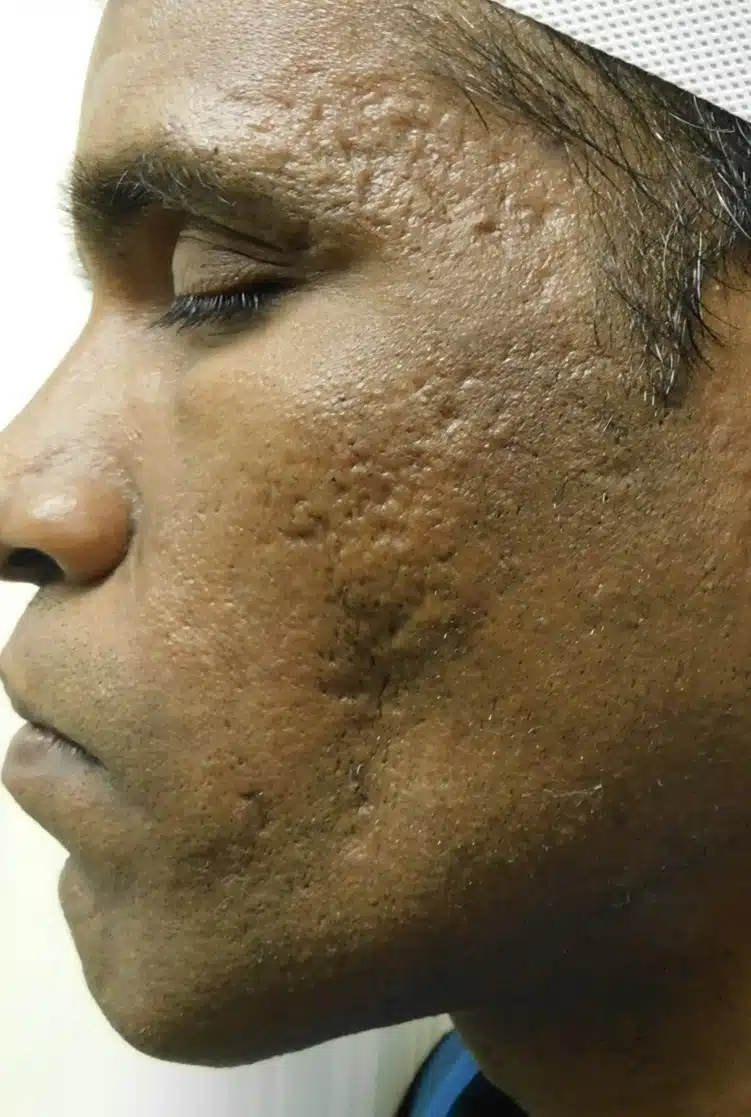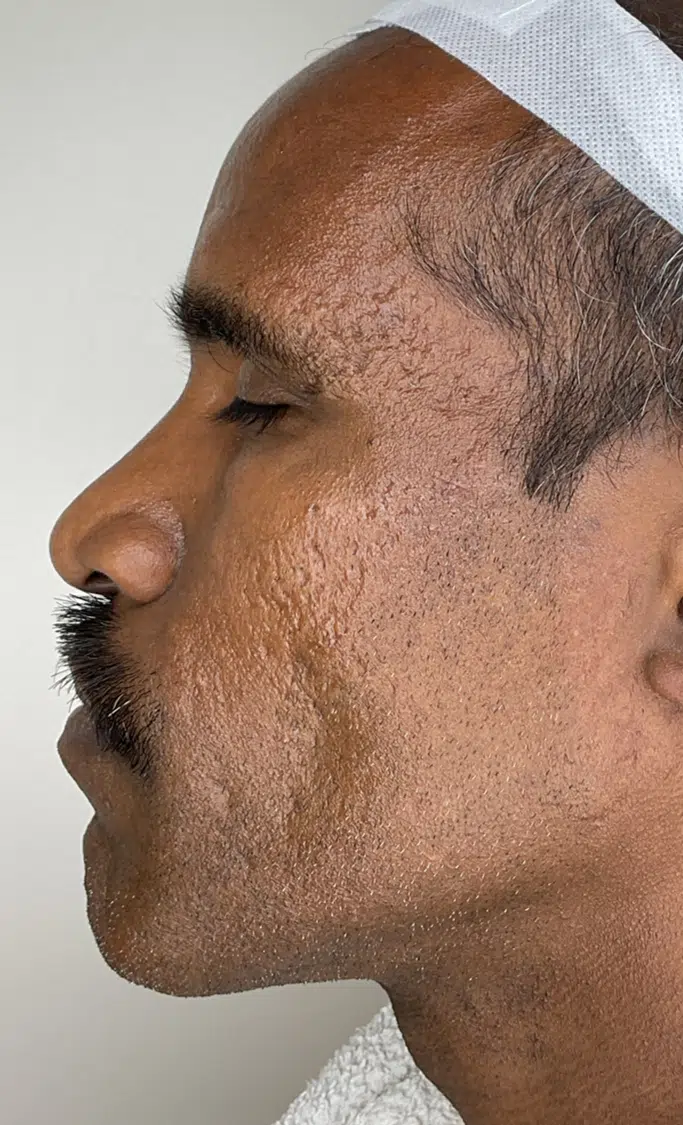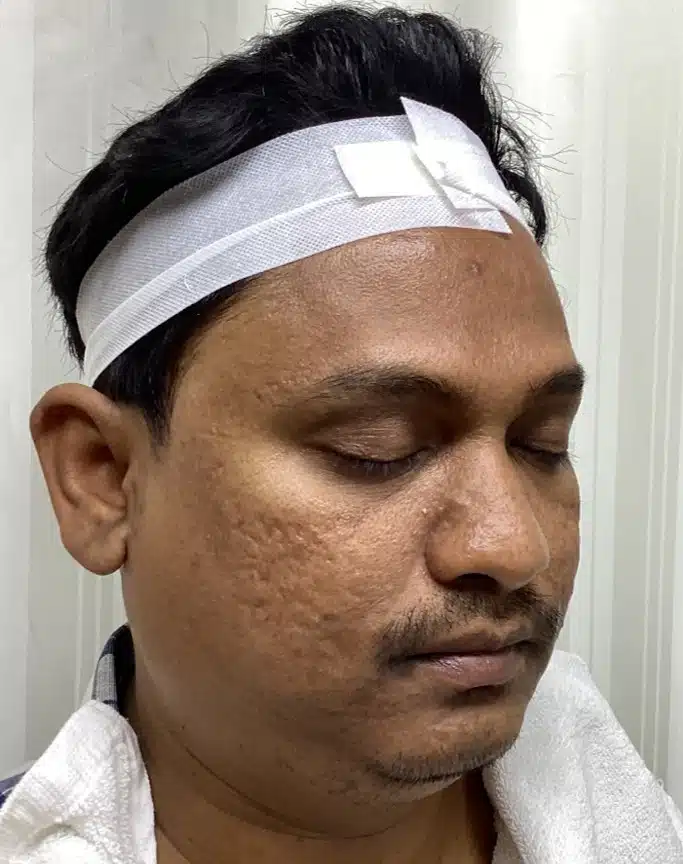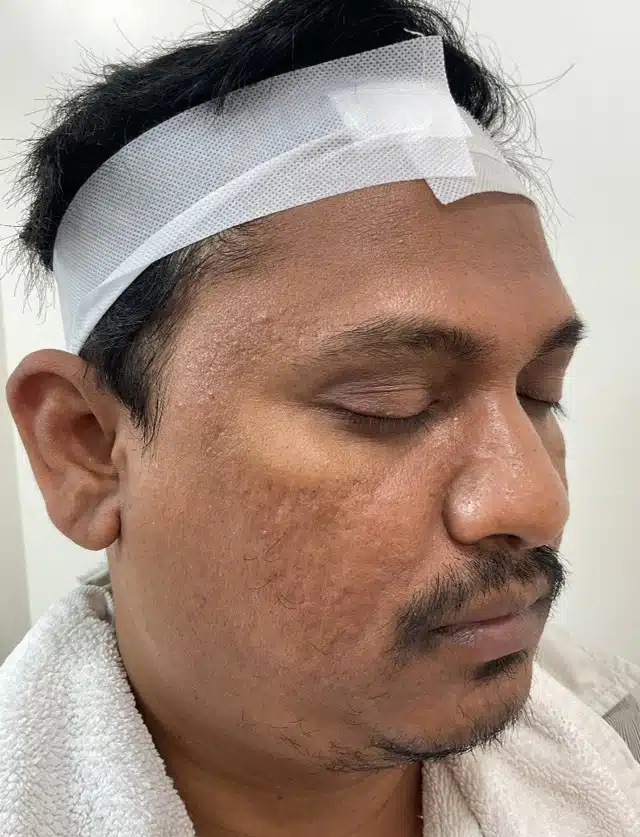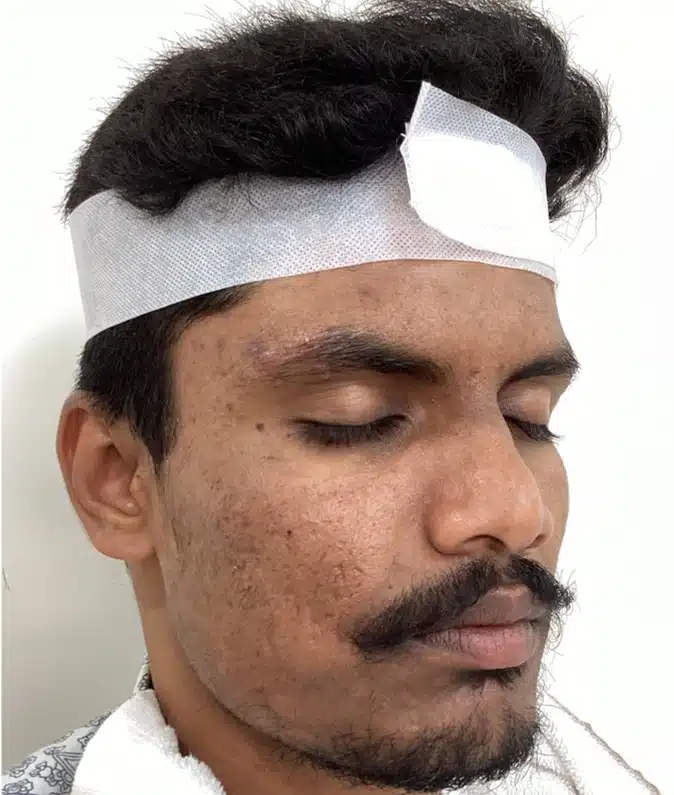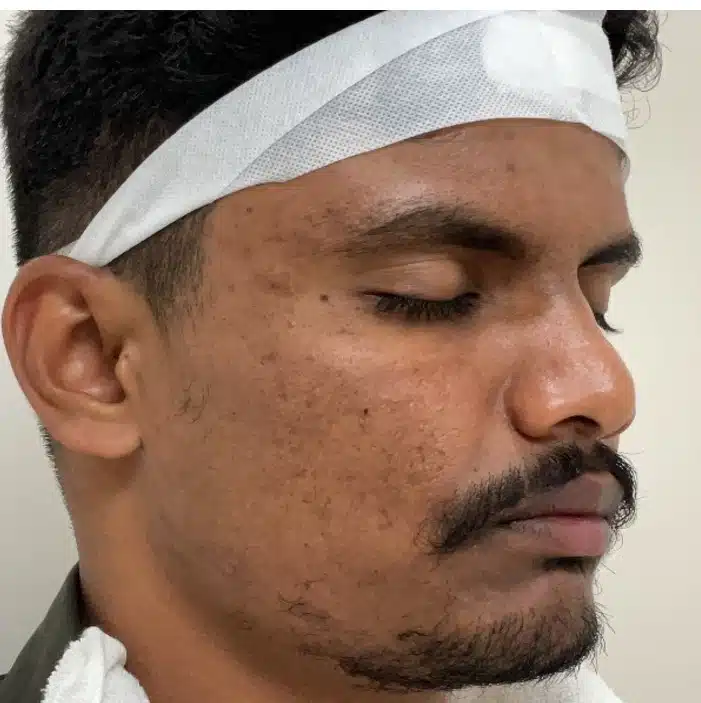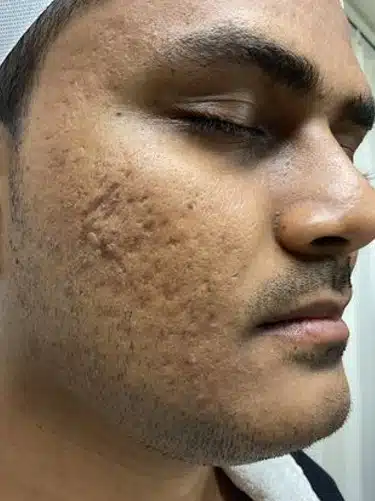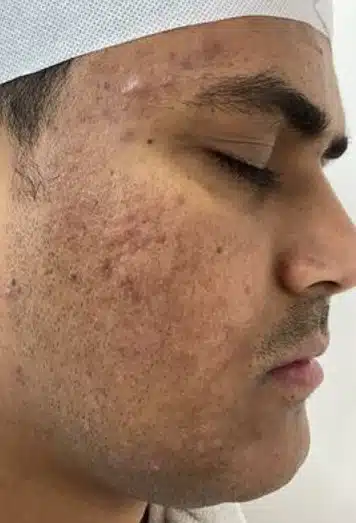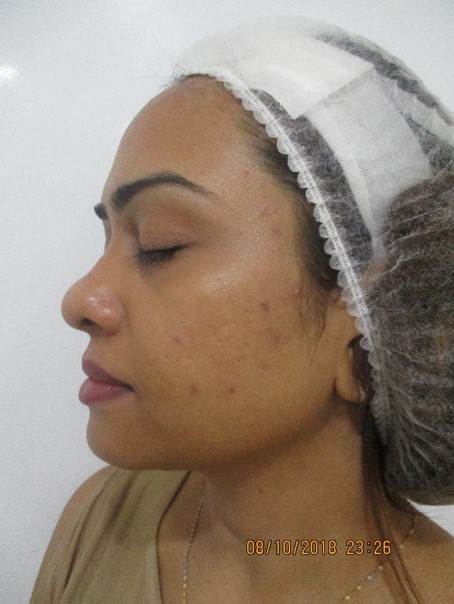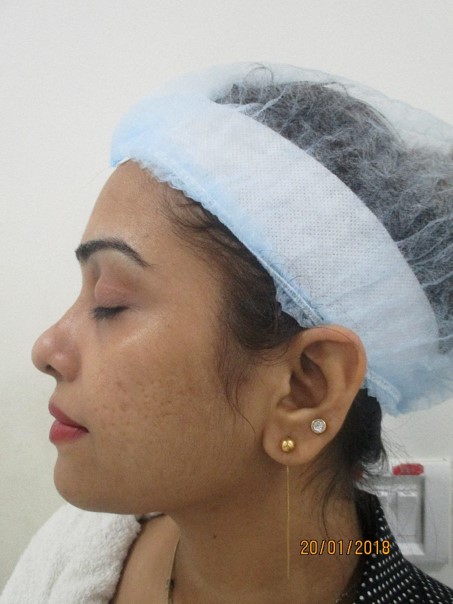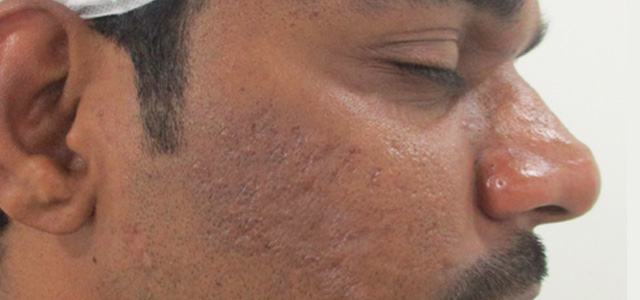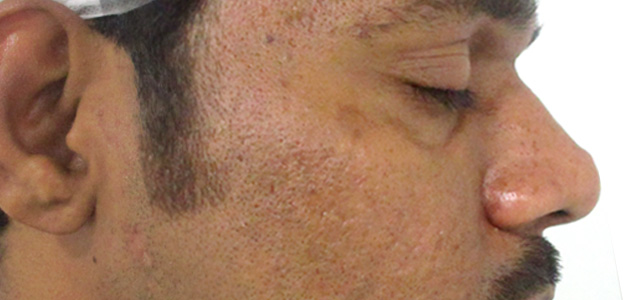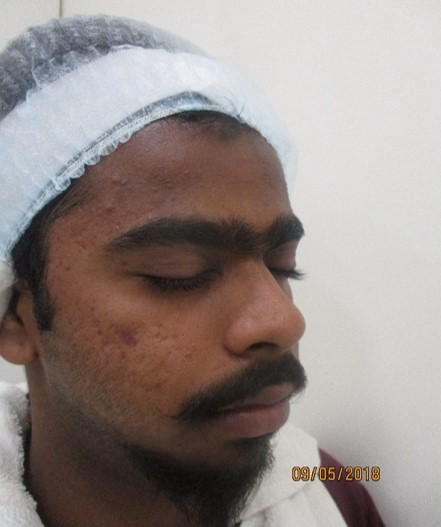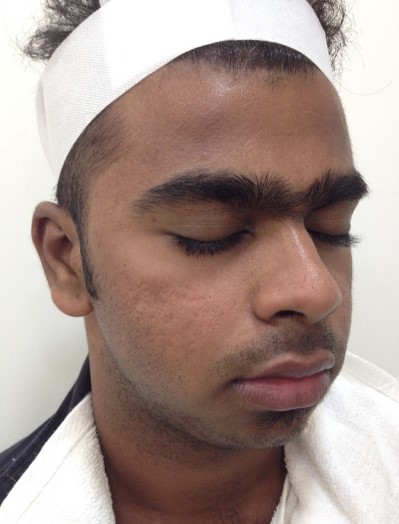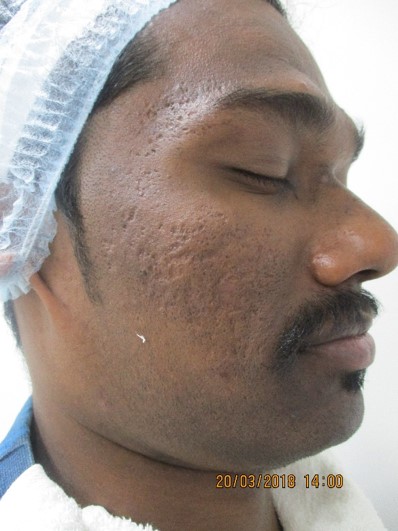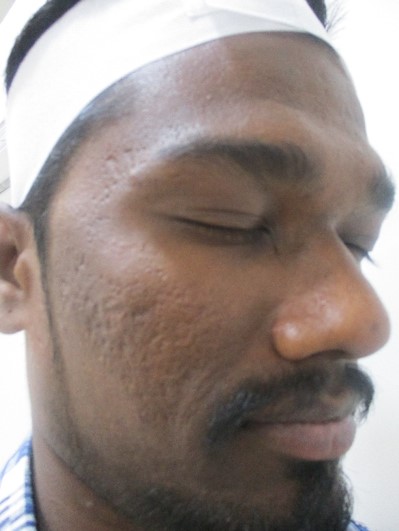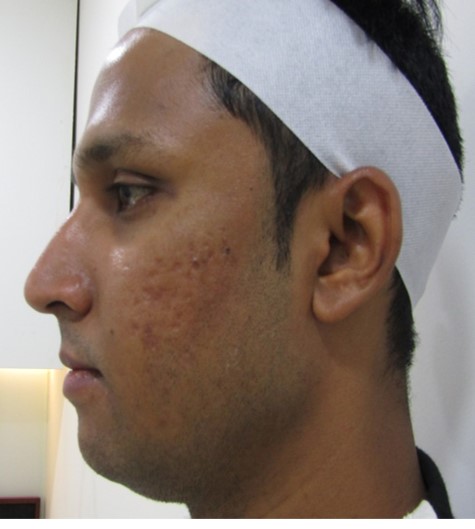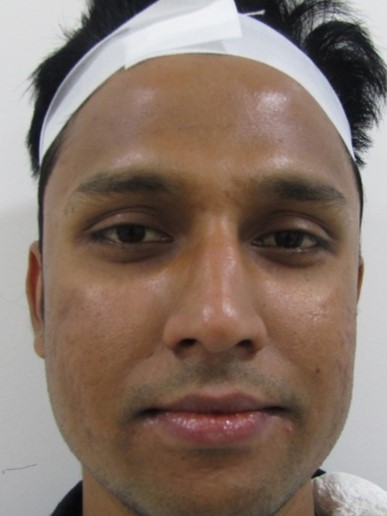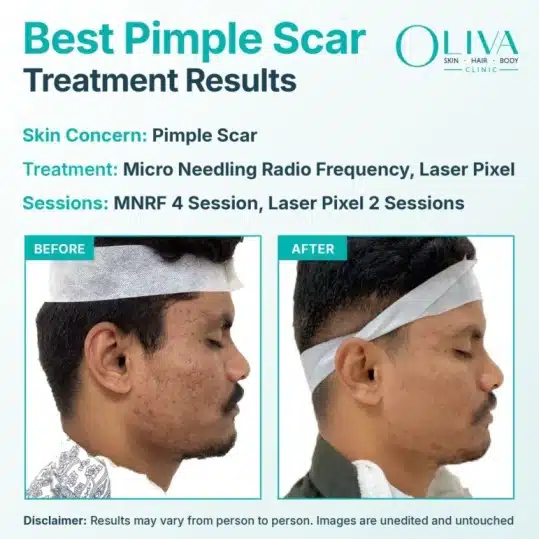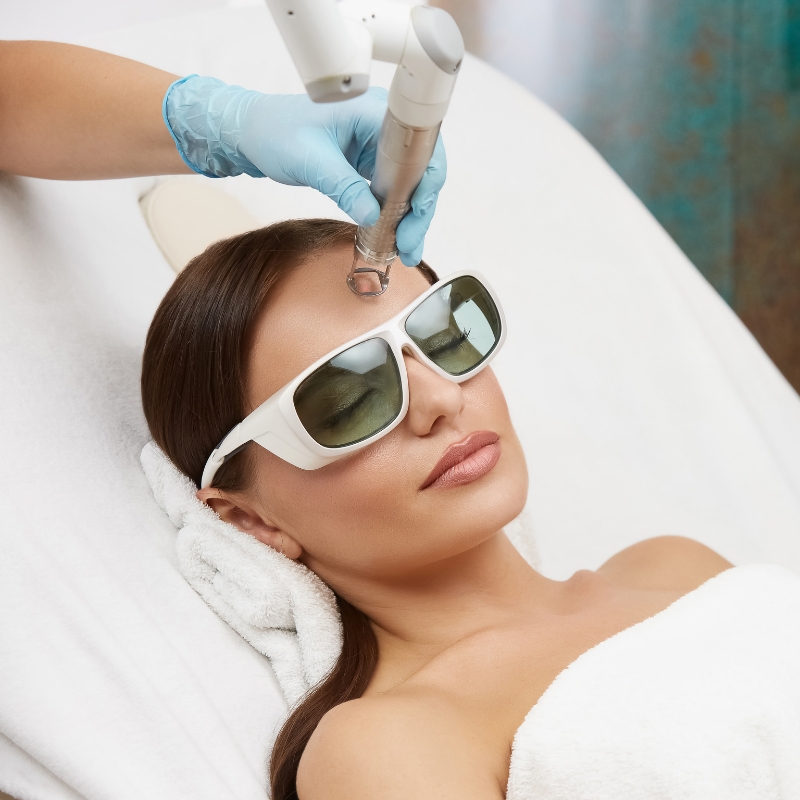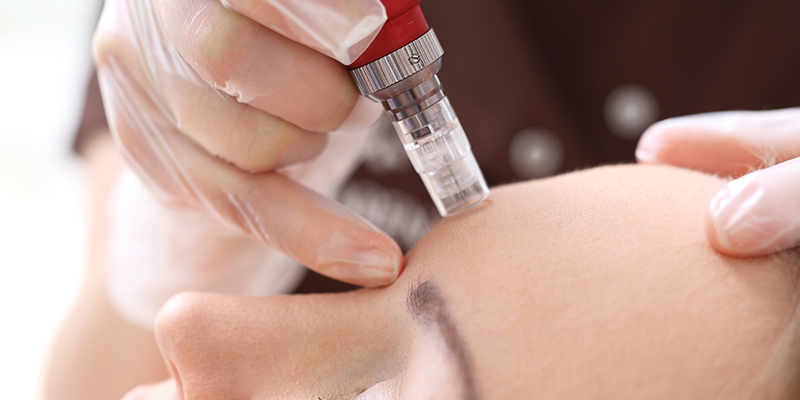Table Of Content
Laser Treatment For Acne Scars: What To Expect, How It Works, Cost, Benefits & Side Effects
Struggling with stubborn acne scars that just won’t fade? Laser treatment for acne scars is one of the most effective solutions to help you achieve smoother, clearer skin. Whether you’re dealing with mild or severe scarring, laser treatment for acne scars can significantly reduce their appearance, boosting both your skin’s texture and your confidence. In this blog, we’ll cover everything you need to know about this advanced treatment—from cost to how it works, procedure, benefits, potential side effects, and what to expect in terms of results.
Table Of Content
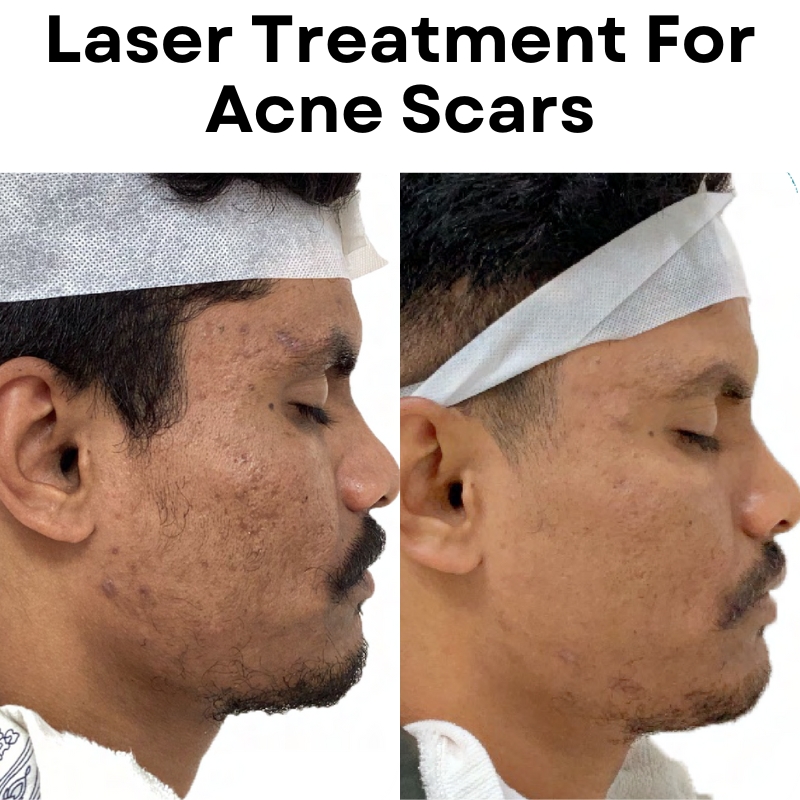
What Is Laser Treatment for Acne Scars?
Laser treatment for acne scars is a dermatological procedure that uses focused light beams to remove damaged skin layers, stimulate collagen production, and encourage new skin cell growth. It helps in reducing the appearance of scars and improving skin texture.
Types of Acne Scars Laser Can Treat
Different types of acne scars require different treatment approaches. Laser therapy is particularly effective for:
- Atrophic scars (depressed scars): Includes ice pick scars, rolling scars, and boxcar scars.
- Hypertrophic scars (raised scars): Often seen in people with darker skin tones.
- Post-inflammatory hyperpigmentation (PIH): Dark spots left after acne heals.
How Does Laser Treatment For Acne Scars Work?
Laser therapy works by targeting the damaged skin layers and boosting collagen production. Depending on the scar severity and skin type, dermatologists use different laser types:
- Ablative Lasers (CO2 & Erbium YAG) – Remove outer layers of skin, promoting fresh cell generation.
- Non-Ablative Lasers (Nd:YAG & Fraxel) – Heat the underlying skin tissue to encourage collagen production without removing skin layers.
- Fractional Lasers – Create microscopic wounds in the skin to trigger natural healing and collagen remodeling.
Procedure for Laser Treatment of Acne Scars
Laser treatment for acne scars is a precise, multi-step procedure performed by a dermatologist to improve skin texture and reduce scar visibility. The process involves the following steps:
-
Consultation And Skin Assessment
Before the treatment, a dermatologist evaluates the type and severity of acne scars. A personalized treatment plan is created based on skin type, scar depth, and medical history.
-
Skin Preparation For Laser Treatment To Treat Acne Scars
The skin is thoroughly cleansed to remove dirt, oil, and makeup. A topical anesthetic or numbing cream is applied to minimize discomfort. Protective eyewear is provided to shield the eyes from laser light.
-
During Laser Treatment For Acne Scar
The dermatologist uses an FDA-approved laser device to target acne scars. During the procedure the laser energy penetrates the skin, triggering collagen remodeling. The heat generated helps break down scar tissue and promotes new skin cell formation. Each session lasts 30–60 minutes, depending on the treatment area.
-
Post-Laser Treatment For Acne Scars
- A cooling device or ice pack is applied to soothe the skin.
- A dermatologist applies a soothing gel or healing ointment.
- Sunscreen is recommended to protect the skin from UV damage.
-
Recovery and Follow-Up
- Mild redness and swelling may last 2–5 days.
- Peeling and skin renewal occur within a week.
- Multiple sessions (typically 3–6 at 4-week intervals) may be needed for optimal results.
- By following post-care instructions and avoiding sun exposure, patients can achieve smoother, scar-free skin.
How Much Does Laser Treatment for Acne Scars Cost?
The cost of laser treatment for acne scars ranges from ₹5,000 to ₹15,000 per session, depending on factors such as the type of laser used, the severity of scars, the number of sessions required, and the clinic’s location.
Cost Breakdown by Laser Type:
Fractional CO2 Laser: ₹8,000 – ₹15,000 per session
Erbium YAG Laser: ₹6,000 – ₹12,000 per session
Pico Laser: ₹10,000 – ₹18,000 per session
Nd:YAG Laser: ₹5,000 – ₹10,000 per session
Laser Scar Removal Before And After Results
Laser treatment for acne scars works by stimulating collagen production, which leads to smoother skin, reduced scar depth, and a more even skin tone. The treatment can effectively reduce both raised and depressed scars, minimize hyperpigmentation, and make pores appear smaller. Over multiple sessions, clients can expect gradual and long-lasting improvements in skin texture and overall skin health. To see the impressive results, check out the below before and after images:
Factors Affecting the Cost Of Laser Treatment For Acne Scars
- Number of Sessions: Mild scars need 2-3 sessions, while severe scars may require 6+ sessions.
- Clinic Location & Dermatologist Expertise: Premium clinics in metro cities charge higher.
- Additional Costs: Consultation fees (₹500 – ₹2,000) and post-treatment care (₹2,000 – ₹5,000).
Benefits of Laser Treatment for Acne Scars
-
Reduces Acne Scars Effectively:
Laser treatment precisely targets deep acne scars, including boxcar, ice pick, and rolling scars. It breaks down scar tissue and promotes new collagen formation, helping to smooth out the skin.
-
Improves Skin Texture & Tone:
By resurfacing the skin’s top layer, laser treatment enhances overall smoothness and reduces hyperpigmentation. This leads to a more even and radiant complexion.
-
Stimulates Natural Collagen Production:
The laser energy stimulates the skin’s natural collagen and elastin production, promoting long-term healing. This helps to restore firmness, elasticity, and a youthful appearance.
-
Minimally Invasive with Quick Recovery:
Unlike surgical procedures, laser treatment is non-invasive and requires minimal downtime. Patients may experience mild redness or swelling, which subsides within a few days.
-
Long-Lasting & Noticeable Results:
Visible improvements can be seen after 2-3 sessions, with optimal results in 4-6 sessions. With proper skincare and sun protection, the results can last for years.
-
Safe for Most Skin Types:
Advanced FDA-approved laser technology ensures that the treatment is safe and effective for various skin types, minimizing the risk of side effects.
-
Non-Surgical & Convenient:
Each laser session takes about 30-60 minutes, and patients can return to their daily activities soon after. This makes it a convenient option for those looking for effective scar reduction without surgery.
Side Effects Of Laser Treatment For Acne Scars
-
Redness and Swelling:
It’s common to experience mild redness or swelling in the treated area immediately after the session. This usually subsides within a few hours to a few days.
-
Dryness or Flaking:
After the treatment, you may notice some dryness or light flaking of the skin as it heals. This is a normal part of the skin’s rejuvenation process.
-
Sensitivity:
The skin may feel more sensitive to touch or sunlight for a short period. It’s important to protect your skin with sunscreen during the healing phase.
-
Temporary Discomfort:
Some patients experience a slight burning or stinging sensation during and after treatment, but this typically resolves quickly.
Pre and Post Care Guidelines for Laser Treatment of Acne Scars
Pre-Treatment Care:
- Avoid excessive sun exposure and tanning beds.
- Stop using harsh exfoliants and retinoids a week before.
- Hydrate your skin and follow a gentle skincare routine recommended by a qualified dermatologist.
Post-Treatment Care:
- Use broad-spectrum SPF 50+ sunscreen daily for every 3 hours.
- Avoid makeup and harsh skincare products for at least for few days.
- Keep skin moisturized and avoid picking or scratching.
- Refrain from hot showers, saunas, and strenuous activities for a few days.
Frequently Asked Questions On Laser Scar Removal
Laser treatment for acne scars is suitable for individuals with persistent acne scars that haven’t improved with topical treatments and who no longer have active acne. It is most effective for those with mild to moderate scars. People with very sensitive skin or certain medical conditions should consult a dermatologist before considering this treatment. It’s also not recommended for pregnant or breastfeeding women. Consulting a qualified dermatologist will help determine if laser treatment is right for you.
Yes, laser treatment is good for treating acne scars as it helps stimulate collagen production to improve skin texture and reduce the appearance of scars. Techniques like fractional CO2 lasers or non-ablative lasers are commonly used and offer significant results with minimal downtime.
No, 100% removal of acne scars may not always be possible. While laser treatments can greatly reduce the appearance of acne scars, complete removal depends on factors such as the depth and type of scars. Most patients experience noticeable improvement, but complete removal can’t always be guaranteed.
Laser treatment results can last for several years. After treatment, your skin continues to improve as collagen production increases. Although results are long-lasting, maintaining proper skincare is essential to prevent future scarring.
Yes, laser acne scar removal can be a bit expensive. The cost varies depending on factors like the type of laser used, the number of sessions needed, and the clinic’s location. While it may seem costly initially, the long-term results and minimal recovery time make it a worthwhile investment for clearer skin.
No, acne scars typically do not return after laser treatment. Once treated, acne scars generally do not come back. However, new scars may form if acne is not controlled. It’s essential to follow a good skincare routine and manage acne to ensure lasting results.
Laser scar removal is generally not painful. Most patients experience only mild discomfort during the procedure, with a slight tingling or warm sensation. Numbing creams are often applied to make the treatment more comfortable, and downtime is minimal.
Typically, 3-6 sessions are required for optimal results. The total number of sessions depends on the severity of your scars. Your dermatologist will recommend a treatment plan tailored to your skin’s needs, with sessions spaced a few weeks apart for the best outcome.




